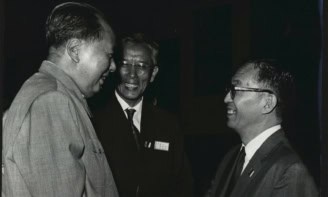By Matin Durrani
When I was a PhD student at Cambridge in the early 1990s, I remember going to a concert by singer-songwriter Billy Bragg at the Cambridge Corn Exchange. Riding high at the time on a string of classic songs such as “She’s Got a New Spell”, “Shirley” and “Great Leap Forward”, Bragg had an ear for a great tune and was a great lyricist to boot – who can forget the classic line “How can you lie there and think of England if you don’t even know who’s in the team?”.
A bit of a leftie who grew up in a traditional working-class environment, Bragg rose to fame as a keen social commentator who bravely tackled everything from racism and homophobia to feminism and football. About as distant from a “pop celebrity” as you can imagine, Bragg has continued to churn out albums over the years to his hard core of (probably ever-dwindling) followers – his latest of which includes a song all about, wait for it, the Higgs boson.
Featuring on the album Tooth and Nail, which is due out next month, the song is, sadly, a bit of dirge. Apart from its ungrammatical title – “No-one Knows Nothing Anymore” – the lyrics are a massive let-down for someone of Bragg’s track record, starting off with the lines,
Deep down in the underground
Atoms spinning round and round
Scientists monitor readings
Searching for the holy grail
The particle or at least the tale
Of the one that gives the universe its meaning.
Well, Billy, they’re not atoms – it’s mostly protons and, sometimes, lead nuclei, that are doing the rounds at the Large Hadron Collider. And if we’re being pedantic, as I like to, scientists at CERN do much more than just “monitor readings”.
Yes, I’m being picky, but the song is frankly a bit of a disappointment. As you can see in the video above, Bragg then continues with “What if there’s nothing, no big answer to find. What if we just passing through time?” before changing direction and taking a few pot-shots at naughty bankers on the money markets.
The song has, though, got me thinking about the parallels between creativity in art and science. Like most physicists, I suspect most musicians do their best work when they are young. And apart from a handful of the really talented, I am convinced most physicists and musicians find it hard to sustain their creativity into middle age and beyond. Even Einstein, for all his genius, never quite matched the brilliance of his youth once he was in the US. So are there, I wonder, any physicists whose greatest breakthroughs came in old age? And which musicians do you think have kept their output at a consistently high level throughout their careers?



